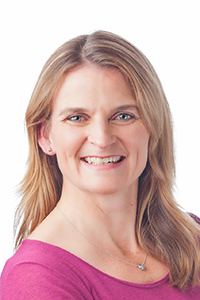 Timberly George Ambler (she/her) knew from a young age that she wanted to be a physiotherapist. All thanks to a physiotherapist in her community who became one of her earliest and longest-standing mentors in her life. She obtained a Bachelors of Kinesiology from SFU and worked as a kinesiologist for 4 years while racing road bikes and travelling the world. Timberly graduated from UBC with a Bachelors of Science in Physiotherapy in 2004.
Timberly George Ambler (she/her) knew from a young age that she wanted to be a physiotherapist. All thanks to a physiotherapist in her community who became one of her earliest and longest-standing mentors in her life. She obtained a Bachelors of Kinesiology from SFU and worked as a kinesiologist for 4 years while racing road bikes and travelling the world. Timberly graduated from UBC with a Bachelors of Science in Physiotherapy in 2004.
Following graduation, Timberly followed her dream to become a sport physiotherapist and was awarded her Sport Physio Diploma, with Distinction, in 2007. he worked her way up the ranks from club sport to National Level programs in Field Hockey and Rugby and most recently spent a season with the Vancouver Canucks. Timberly is a partner at City Sports + Physio Clinic in downtown Vancouver and spends most of her free time in the outdoors, mountain biking, trail running, hiking with her dog, or volunteering for the Lions Bay Search and Rescue team.
What drew you to the Master of Physical Therapy at UBC?
Knowing I wanted to be a physio from age 16, I started researching the process in high school and saving for my tuition. UBC was the only school offering physiotherapy in BC, and as much as getting out of dodge sounded exciting, financially it was out of reach. I knew there would be benefits in making professional connections in the same province I grew up in and planned to spend my life in.
What is your favorite memory from your time at UBC?
Attempting to play quarterback in the annual charity football game between the School of Nursing and the School of Rehab Sciences. My attempt lasted two practices before I decided I was a better team manager! It was a super fun event for a great cause that brought out a lot of people from around campus.
What has been your journey since graduating from UBC?
After graduation in 2004, I went straight into private practice working for my earliest mentor in life, out in White Rock. I knew I wanted to pursue my post graduate training as a sport physiotherapist so eventually I sought out a clinic and more mentors who would support me through that process. I spent countless hours on the sidelines of various sports, most notably rugby and field hockey.
I worked my way up to eventually working with the Canadian National teams and being fortunate to travel the world with them. My work with athletes and teams has had a massive positive impact on my clinical practice and growth of my career. I worked at the Vancouver 2010 Olympics, the World University Games in China, with the Vancouver Canucks for the 2021/22 season, and will be heading to the 2023 Canada Winter games in Prince Edward Island.
I have been a partner at City Sports + Physio clinic since 2013 and have been a clinical faculty instructor and teaching assistant in the UBC Department of Physical Therapy since 2010. And as a sucker for volunteerism, I joined the Lions Bay Search & Rescue team in early 2020.
What do you find most interesting about a career in physical therapy?
I find it interesting that no matter what type of social event you’re at, once you tell a complete stranger you are a physiotherapist, you will be asked about their sore shoulder! Joking aside, I find it interesting that even though I never wanted to be a teacher, I have become one. For every patient, I am teaching them about their body, their injuries, and the healing process. And I love it.
Where do you find inspiration?
In the mountains of the North Shore, when I’m hiking with my dog, mountain biking with my husband and friends or out for a solo trail run. The fresh mountain air is invigorating and cleansing. Cooking is a close second – I can get lost in trying a new recipe and spend a whole afternoon at it.
What is one thing you hope to accomplish?
To become fluent in the language of Italian – both in speaking and cooking!
What does a healthy society mean to you?
To me, a healthy society is one in which everyone, regardless of who they are or where they live, has access to the care they need, when they need it. That resources are available, and the system can provide them without being overwhelmed. That healthcare workers work together to advocate for and manage each person’s needs without stumbling blocks getting in the way.
Comments are closed, but trackbacks and pingbacks are open.